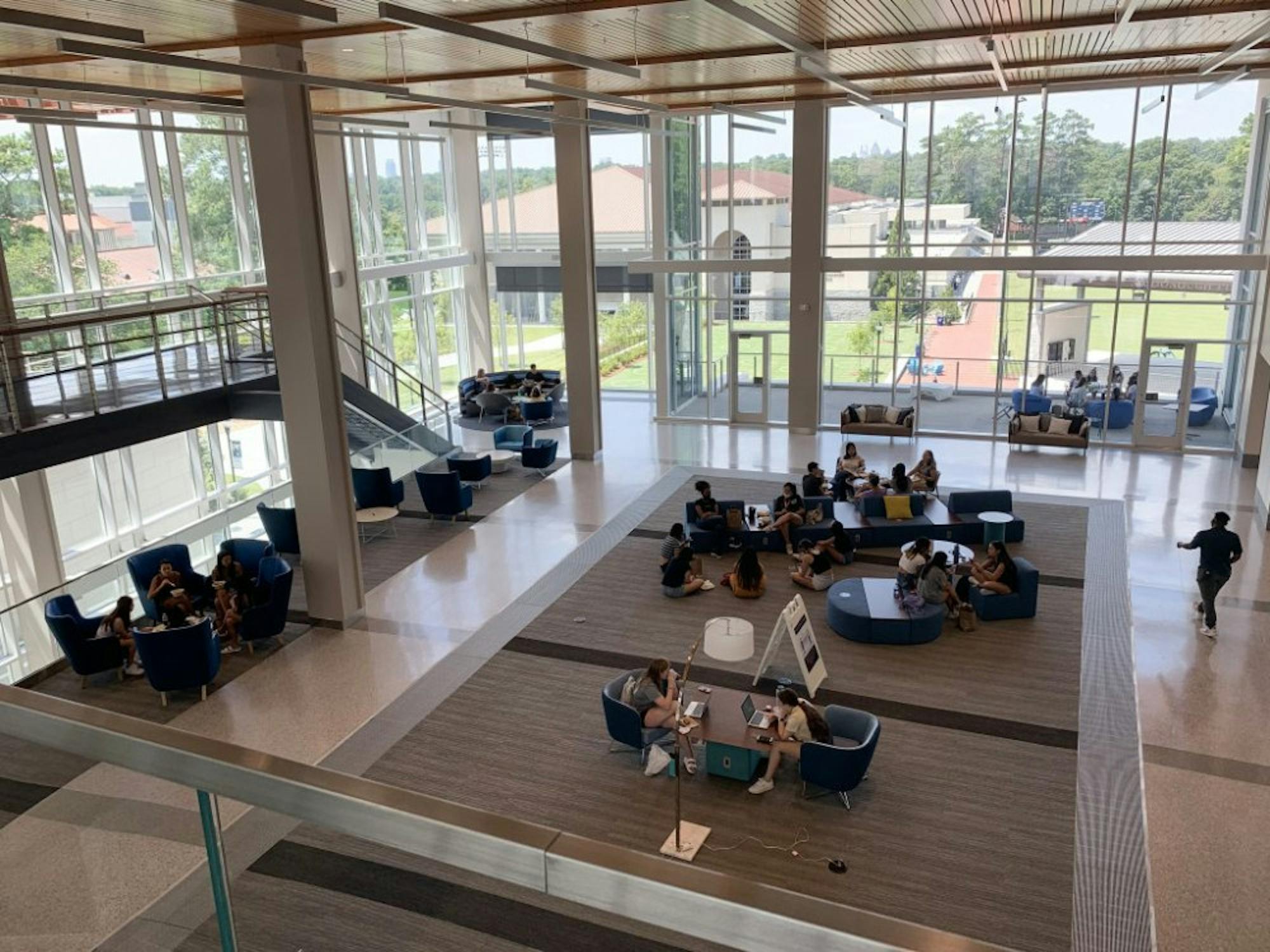Although Emory University announced earlier this month that students would return to in person classes on Jan. 31, the remote start to the spring semester yielded mixed reactions from students.
Emory has stated that the temporary shift to virtual classes will allow for academic continuity of students. If students tested positive for COVID-19 during the Omnicron surge, in-person classes would consequently not take place and cause greater academic disruption.
Hailey Greenstone (22C), who returned to Emory’s campus before the University-recommended late January move-in, expressed the lack of in-person classes and peers around her as a “strange” experience.
“Emory feels like it did last year — a ghost town,” Greenstone said. “I live on Clairmont and have barely left my apartment, and when I do there’s nothing happening outside and it’s very uncomfortable.”

Having begun college when Emory was almost completely virtual last year, Nyah Bruce (24B) conveyed a similar sentiment, saying that restrictions for the spring 2022 semester were reminiscent of the fall 2020 restrictions.
“The majority of my college experience thus far has been impacted by this pandemic,” Bruce said. “It is disappointing to return to such restricted conditions.”
Other students have expressed their discontent with the lack of transparency regarding Emory’s decision to move from in-person to virtual classes. Jane Wang (22C) created a petition to return classes back to in-person that was signed by 105 Emory students.
“I wanted to give students like me a way to express discontent, provide possible alternatives to a fully online education, and ask for more open communication,” Wang said. “So, I wrote a ridiculously long letter that eventually became a petition.”
The petition, which received 105 signatures, offered suggestions to allow for in-person instruction post-Jan. 31 even if cases continue to increase. These suggestions include ensuring that all classes have an online option for students who do not feel comfortable returning to campus for health-related reasons and requiring bi-weekly COVID-19 testing throughout the semester, among others. The University did not adopt either of these suggestions.
Despite the disappointments caused by a virtual start to the semester, some students believe the University’s plan will be effective in combating rising COVID-19 cases. Delaying students’ return to in-person classes gives her confidence that there won’t be a mass COVID-19 outbreak on campus, Yogini Patel (23B) said.
“If some test positive and need to be quarantined, they will not have to worry about missing classes,” Patel said. “With this being said, I like Emory’s flexibility in letting students come back during the remote learning weeks. This way, I didn’t need to worry about canceling my flight back and incurring more expenses in booking another one.”
As of Jan. 16, COVID-19 cases in the U.S. were up by 108% over the last 14 days, while Georgia has experienced a 34% increase in cases. Hospitalizations remain high, with DeKalb County experiencing a 262% increase over the same period.
COVID-19 cases have begun to decrease on campus after a mild spike following the original Jan. 9-10 move-in. Across those dates, 30 students tested positive for COVID-19, according to the Emory COVID-19 Dashboard. Eighteen students tested positive on Jan. 14. As of Jan. 19, 45 students and 25 faculty and staff have tested positive over the last 10 days.
While Jessica Majka (25C), who spent the first week of the semester at home, understands Emory’s intention to limit the spread of COVID-19 on campus, she said virtual learning has been a difficult adjustment. She added that unless she is in a school setting, she will not be able to focus on academics.
Although some students originally feared that virtual classes would come at the cost of their mental health, they later found the opposite to be the case.
Before the start of the semester, Melissa Shane (25C), who is still adjusting to her first year at Emory, expressed her concerns about falling behind and not receiving support in her classes.
“Weeks of online learning, for many students, is less effective than weeks of in-person learning, and I worry that I won’t have comprehended the foundational content of the courses necessary to succeed the rest of the semester,” Shane said.
After the semester started, however, Shane said that while she misses social interactions with her peers and professors, online classes have been beneficial to her mental health and have helped reduce her stress levels.
“I would say [virtual schooling] reduces burnout syndrome because many teachers are more lenient to assign super heavy workloads and I can sleep in more than if I were to have to get dressed to go to class,” Shane said.
Some students also expressed that their professors have taken steps to improve the remote learning experience. Flexibility of assignments has been an essential part to many students’ adjustment to their online classes.
“I think that professors have adjusted their lessons well to some extent and are more understanding of absences due to COVID-19, late assignments or extensions and technology problems,” Majka said.
Nevertheless, many Emory students fear missing out on their college experiences. Due to the surges in COVID-19, students missed study abroad, research on campus and even social interactions with their peers.
“I’ve already spent my whole sophomore year online and even had the BBA ski trip canceled for this January due to COVID,” Patel said. “I have yet to spend a whole year on campus and get the full college experience so I’m really hoping the cases will stagnate and decrease in the next few weeks.”





